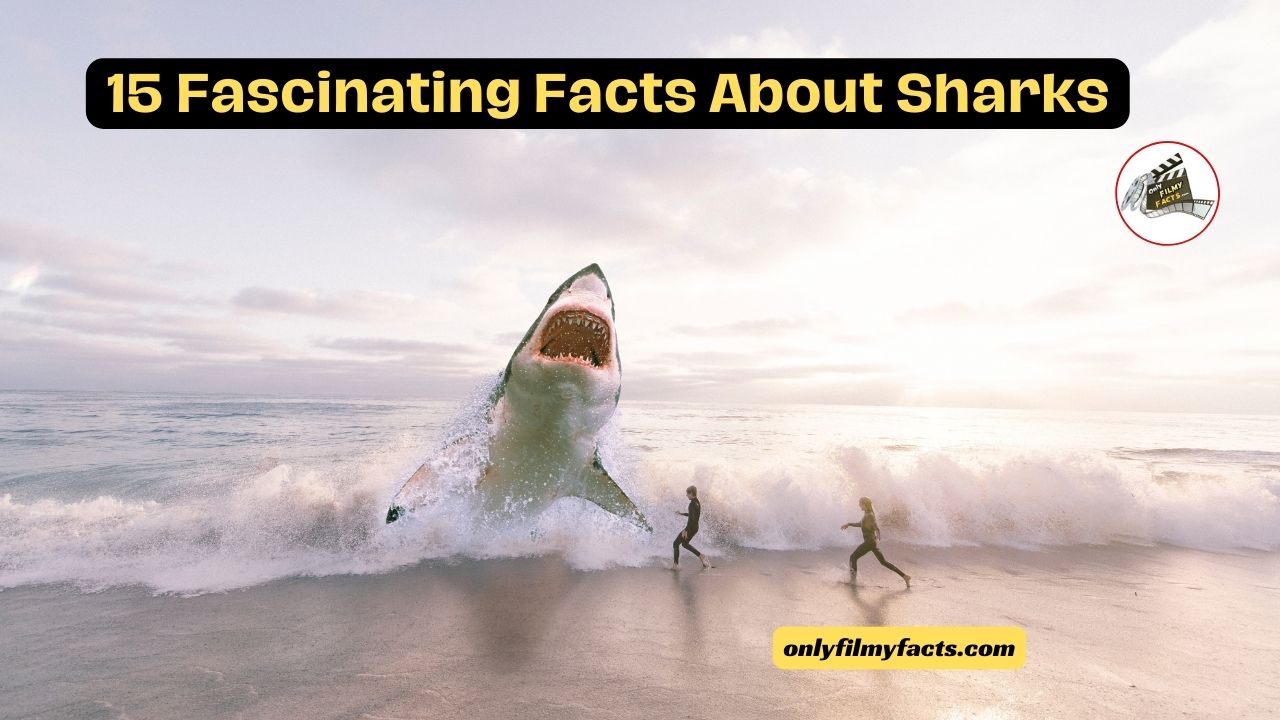Even though sharks have been around for at least 400 million years, there are still a lot of interesting facts about them that you probably don’t know.
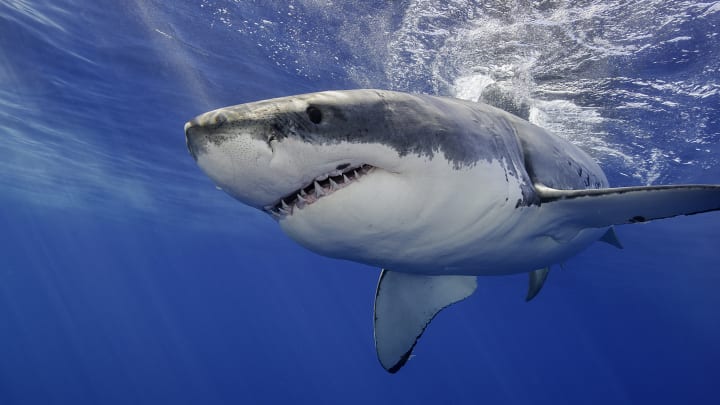
Among the more than 500 species of sharks is the great white. / wildestanimal, Moment Collection, Getty Images
These amazing facts about sharks, which are taken from a YouTube episode of The List Show, will interest everyone, whether they are fans of Jaws or just want to live every week like it’s Shark Week.
1. Sharks come in over 500 different species.
They are 8 inches to 40 feet long, depending on the length.
2. The shark can reach a maximum length of 22 inches.
The cookie cutter shark clings to its prey with its lips that resemble suction cups. Once it is securely in place, the shark spins its body and extracts a cone-shaped piece of flesh with its bottom row of serrated teeth. Although they have been known to bite a few humans, cookie cutters usually feed on larger sea animals. Additionally, they have a history of leaving their mark on submarines.
3. A fisherman who captured a 4500-pound monster in Montauk in 1964 served as the inspiration for Peter Benchley’s 1974 book Jaws.
Jaws was not always going to be the title of the book. The Jaws of Death, Leviathan Rising, The Silence of the Deep, and The Stillness in the Water were some of the other titles.
4. Later on, Peter Benchley turned towards shark conservation.
He addressed myths concerning the fish with his pen. He said, “I could never write that book today,” in 2006. Sharks don’t hunt people, and they don’t harbour resentment either. Interesting fact: Benchley appears in the 1975 film adaptation of his novel by Steven Spielberg. He portrays a news reporter for TV.
5. Shark attacks are very rare.
In 2018, there were 66 confirmed unprovoked attacks. Compared to nine fatal attacks in 2021 and ten in 2020, there were 57 confirmed cases of unprovoked bites in 2022, five of which resulted in fatalities.
The Florida Museum of Natural History reports that the International Shark Attack File indicates that there is a 1 in 4,332,817 chance of dying in a shark attack. Sharks are not as likely to kill you as fireworks, train accidents, or MRSA, the antibiotic-resistant bacteria. Worldwide, the risk is even lower.
6. Sharks have existed for a long time.
We are aware that they have been swimming the seas for at least 400 million years because of their fossilised teeth.
7. Certain shark species have extraordinarily long lifespans.
Using radiocarbon dating on the eyes of 28 Greenland sharks, researchers in 2016 estimated the possible age of one female shark to be about 400 years old.
8. In Iceland, greenland shark meat is referred to as hákarl.
Since shark meat is poisonous when raw, it must undergo a fermentation process in which the shark’s body is buried for six to twelve weeks beneath rocks in sand. After that, the meat is sliced and hung to dry. The completed product smells strongly of ammonia. It was dubbed “the single worst, most disgusting and terrible tasting thing” by Anthony Bourdain, who had eaten it.
9. Despite their reputation for devouring humans, great white sharks are far more drawn to seals and sea lions.
Great whites have a 40 to 55 percent accuracy rate in catching their seal prey, according to research. During the hunting process, the sharks frequently breach, or emerge completely from the water.
10. Great whites are fast.
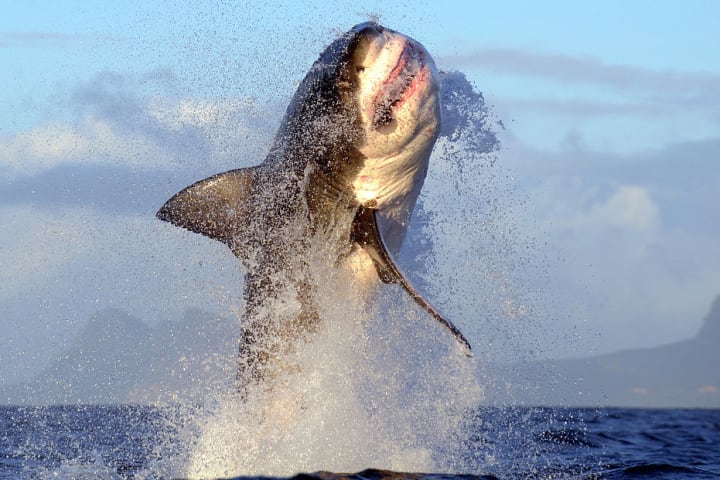
As surprising as it may seem, these carnivores move rather swiftly. / Chris Brunskill Ltd/GettyImages
For brief periods, they can swim at 35 miles per hour.
11. The myth that great white sharks attack humans because they believe we are seals is rejected by a large number of shark researchers.
Great white shark attacks on humans are much less vicious than the way sharks attack prey like seals and sea lions—one study reported that in 76 percent of attacks on surfers, the force would not have stunned a pinniped. Usually, they’re probably just inquisitive, but they could still be fatal. According to an expert who spoke with Discovery, the best course of action in the event that you spot a shark is to try to calm down and slowly make your way back to safety.
12. Great white sharks aren’t found in aquariums—though not for lack of trying.
Workers in aquariums who have attempted to maintain sharks in captivity since the 1970s have essentially had the same tragic experience: discovering a great white shark in captivity that is sick and eventually dies after a week. Because they are unable to swim as fast or as far as they should in enclosures, the sharks either crash into the glass and sustain injuries or simply give up and perish. Sharks that are younger generally fare better. For example, a young great white shark kept at the Monterey Bay Aquarium for 198 days was eventually released because she began chasing other sharks.
13. Sand tigers and tiger sharks are not the same species.
Additionally, tiger sharks—like the one shown here—do not thrive in captivity. Photograph by Rodrigo Friscione; source: Getty Images
The tiger shark is another shark species that is rarely seen in captivity these days. This is not to be confused with the completely unrelated species known as the sand tiger shark, which is kept in aquariums all over the world.
14. Numerous pups are born to female tiger sharks.
Between 10 and 82 small shark offspring could be born to a female shark after 13 to 16 months of pregnancy. It is approximately thirty on average.
15. A female shark will frequently give birth to her pups in the same location that she was born.
One study, which began in 1995 and concluded in 2012, found this to be the case with lemon sharks in the Bahamas.

